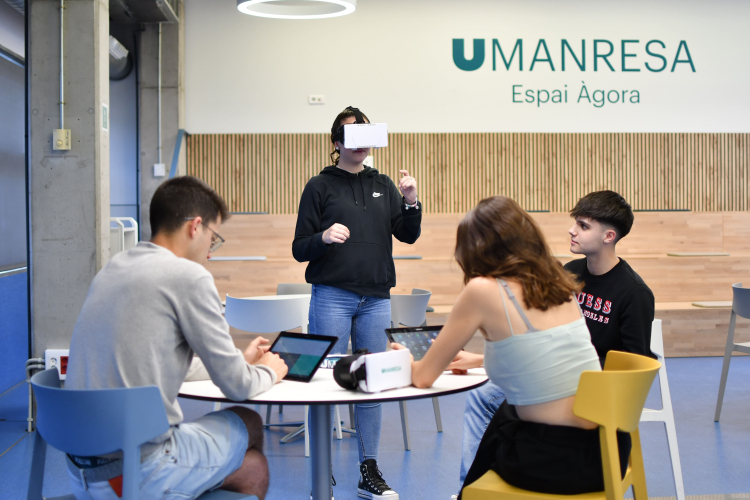Next September, at UManresa (UVic-UCC), the second edition of the university degree in digital society management will begin. The main innovation will be the start of paid internships at companies and organizations, which will allow learning in the classroom to be combined with learning in the sector and which will form part of the Premium program for the university degree. Some of the participating companies will be UVE Solucions, Control Sistemes, Cloud Active Reception or Seidor. "We prioritize the link between the university and the business fabric. We want to train professionals with a solid base of theoretical knowledge who are able to put them into practice and use them in a work context", says Marc Bernadich, dean of UManresa.
The university degree in digital society management relies on simulation, reading, reflective debates and learning based on challenges and projects. Specifically, reading has been introduced as a basic tool for building knowledge and stimulating critical thinking. These are readings aimed at reflecting on the technological revolution and the impact of digitalisation. "In addition to reading, we are particularly committed to the simulation methodology, a transversal learning tool implemented in all UManresa studies. The simulation serves for the students to experience situations that they will have to face in the world of work and allows them to train management, leadership, communication and conflict resolution skills", explains Bernadich.
Last academic year 2023-2024, the university degree was launched for the first time in order to train professionals prepared to face the challenges of the disruption caused by digitization. The intention is to train people with the knowledge and skills to lead digital transformation processes in companies and entities. The university degree aims to respond to the current demands made by the business fabric, which has detected the need for a transversal professional profile that knows how to design, manage and evaluate digital and innovation projects. "We want to train reflective and critical professionals with a solid technological base, data analysis and team and project leadership, with a humanistic and ODS perspective", shares Bernadich. The reception of the first edition has been very positive. "The classes have been dynamic and the groups small. The simulation methodology makes the sessions practical and attractive", says student Aina Solé. "The sessions are participative and the transversal content helps us build and adapt the professional profile to the current demands of companies", points out student Manel Navarro.
Interested parties can find more information at this online link .



